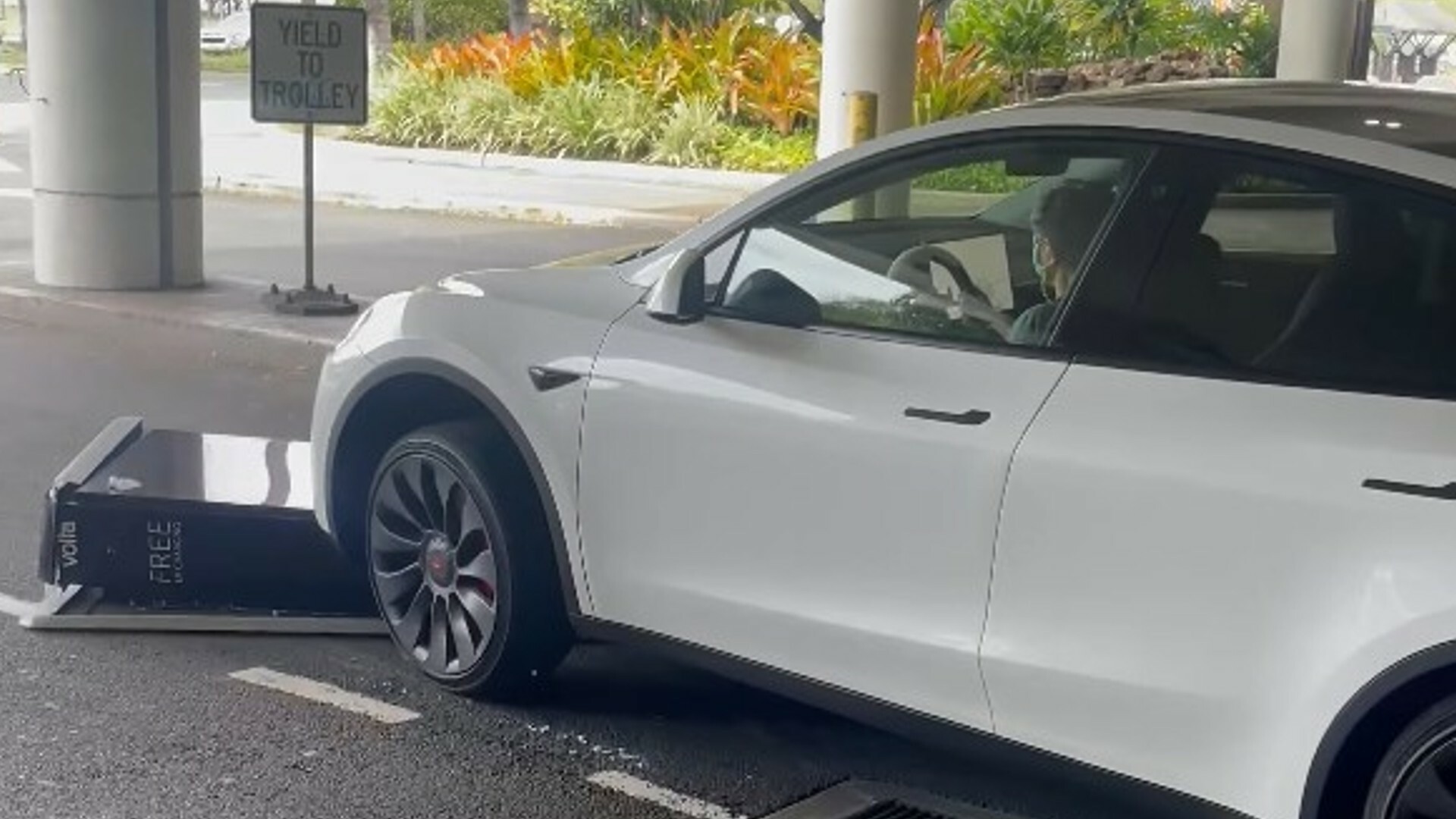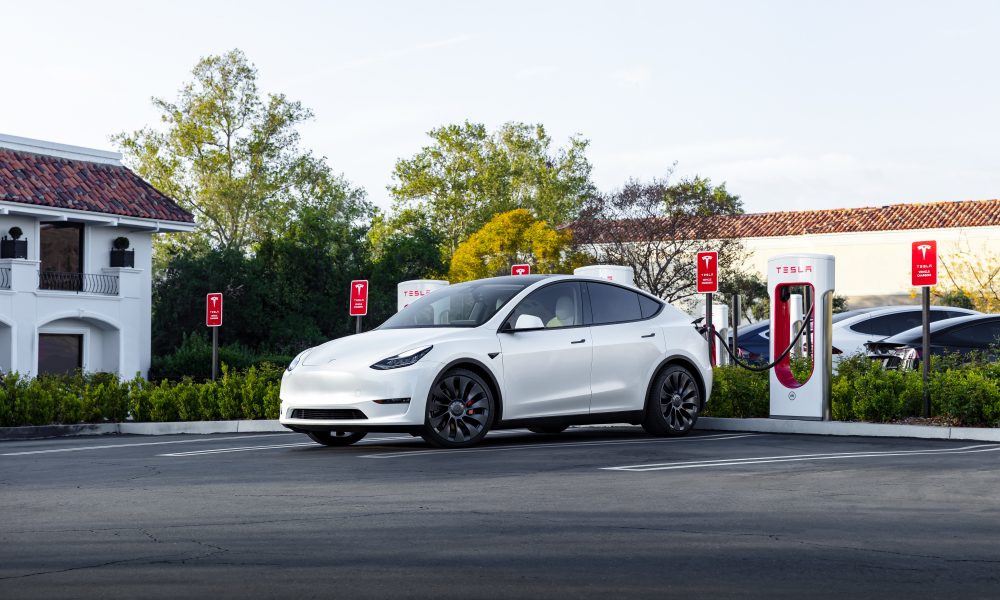OccamsRazor
Well-Known Member
Total... what??Glad to hear it, at least you are not total.
Total... what??Glad to hear it, at least you are not total.
Ya gotta consider the minds doing the artwork.
To the Tesla Fan-Boys, it's probably erotic.

At least count there were five in NZ. Maybe 4-5 running around the Bay Area. There are none of them under covers outside the factory in Texas, and more being built inside.Tesla Cybertruck found broken down on side of the road
A Tesla Cybertruck release candidate was found broken down on the side of the road as the automaker is testing the electric pickup truck ahead of the start of production.
Over the last few months, we have been reporting on Tesla’s evolving test program for the Cybertruck ahead of production, which is just a few weeks or months away.
For example, Tesla was spotted testing the Cybertruck’s suspension on its test track in California, and the automaker also sent a Cybertruck prototype to New Zealand for cold weather testing.
The electric pickup truck is going through final validation ahead of the start of deliveries, which CEO Elon Musk said should happen around the end of September.

Yep just what they need out west with burn bans everywhere.Electric vehicle fires pose significant challenge to firefighters as Colorado pushes for 940,000 EVs by 2030
Electric vehicle purchases in Colorado are soaring, with EV registrations in 2022 up by 822% since 2016. But some firefighters say they're going to need a lot more resources if these vehicles keep coming at that rate, because they still don't know the best ways to extinguish the flames if an electric vehicle catches fire.
Firefighters have had more than 100 years to perfect the art of putting out a fire involving a vehicle with a gas motor engine. But those traditional tactics don't work on electric vehicles because they use lithium ion batteries to run instead of gas. Lithium ion battery fires are more tricky to put out, sometimes reigniting several hours, days or even a week later.
An explosion that happened inside a garage of a home in Erie back in April is bringing the concerns to the forefront for firefighters with Mountain View Fire Rescue. The explosion blew off a firefighter's helmet, and knocked back firefighters inside.
It happened after the homeowners called 911 when they saw smoke coming from their electric Jeep that was charging in the garage.
Firefighters went inside to check it out, and accidentally caused the explosion when they sprayed water on the smoke.
"Once they got into the garage, they had a smoke filled garage. They couldn't even see the stairs going into the garage, and once they opened the door and sprayed water, that's when they created an explosion," said Doug Saba, deputy fire marshal for Mountain View Fire Rescue. "The problem with this was a buildup of combustible gases inside the garage, and it started coming into the house, and that happens a lot with batteries, lithium ion batteries that fail, and they fail because there's a either manufacturer defect or something damages those batteries causing that. It could be an electrical short."


The thing I found interesting wasn't the douche in the Tesla, it was that the Tesla charger cost much more.

Tesla Driver Skips Wide-Open Superchargers To Take Ford F-150 Lightning Owner's Only Charging Spot Because It's Cheaper (UPDATED) - The Autopian
Last night I drove my BMW i3 to a charging station in Pasadena, where I witnessed some of the most selfish, pathetic behavior I’ve seen in a while. (Editor’s Note: And he works on the internet all day, people! —PG). A Tesla driver saw that his fellow man was in a vulnerable position, but decided […]www.theautopian.com
Drivers in California may expect to pay 30 cents per kWh to charge on Level 2, and 40 cents per kWh for DC fast charging

Short version: EV sales are in the terlit.Pricing for the foreign makers got wacked with the tax credit they, and some American vehicles, didn't qualify for. Hard to compete when the other guy has a $7500 price advantage and they are still making money.
Ford has two models, the Lightning, which got a bad rep for the tow range, deservedly so, and the pricing (two here on the lot at the Port Orchard WA dealer next to my hotel, both 100K) makes it a hard sell. No tax rebate. And the Mach-E, which being made in Mexico, also gets no tax rebate so its at a price disadvantage against the Model Y. Add in gauging dealers who not only mark up product they bought, but also have been jacking customer ordered inventory to drive those customers away and ADM the hell out of them.
GM has Bolts and Bolt EUV. Both huge money losers on each sale so they are not going out of their way to make them really fast. The Hummer, of which they sell very few at over 100K a pop. They are having problems scaling battery production and wont introduce anything that qualifies for a rebate this year maybe. The SIlverado EV is gonna weigh 8,500lbs and initially only fleets can buy the 79K and 74K work truck versions while consumers can only get the 106K RST package
Stellantis? Who knows, lots of talk, but not a lot that's concrete beyond a pickup in 2025.
And lets be clear, dealers are maybe not the best source, as they HATE EVs. With a burning passion of lost service revenue. I think 70% of dealer profits come out of service. And most of that evaporates with EVs.
As always, the story is more nuanced than a simple headline. If you can sell a price competitive product, you can still sell the hell out of EVs. But once the govt put its thumb on the scale, things go sideways. Teslas "Oh, no please dont bring back subsidies!!!!" almost looks like a huge rope a dope since they are the only ones who had the margins to cut prices to hit rebates and still make money.
Thanks for the Cliff Notes. My eyes were blurring.Short version: EV sales are in the terlit.
